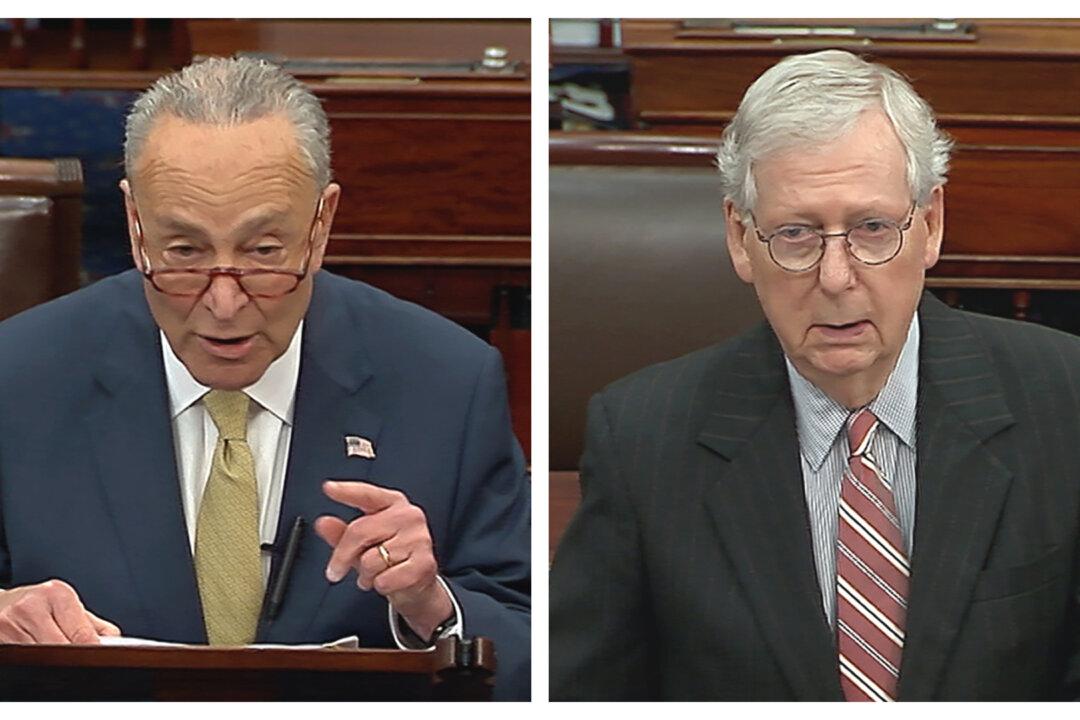Senate leaders from both parties said they will pass all 12 appropriations bills by the end of the month to avoid a government shutdown, setting up a clash with the House where hardline Republicans have spoken openly about forcing a suspension of nonessential government functions to press for further cuts in federal spending.
In separate press conferences on Capitol Hill on Sept. 6, Senate Majority Leader Chuck Schumer (D-N.Y.) and Minority Leader Mitch McConnell (R-Ky.) appealed for senators to continue working in “regular order” to complete the appropriations process on time.






